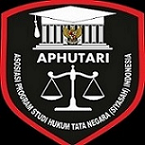Konsep Kompilasi Hukum Ekonomi Syariah Terhadap Gaji Buruh Di Desa Sawah Mudik Kecamatan Ranah Batahan
Abstract
This research examines how the determination of workers' wages in the village of Sawah Mudik is reviewed according to the Compilation of Sharia Economic Law. The research method used is field research with a qualitative approach. Primary data sources, namely primary data sources in this study are male workers, female workers and land owners while secondary data is from books and scientific journals that are considered relevant to this research. data collection techniques with observation, interviews and documentation, with qualitative descriptive data analysis techniques. The results of this study are that the wages given by the employer to farm laborers in Sawah Mudik Village, Ranah Batahan District, West Pasaman Regency, if they work all day are IDR 70,000.00, if the workers are given lunch by the employer and if the workers bring their own lunch, the workers receive a wage of IDR 80,000.00. Meanwhile, the wages that female workers get if they work all day are IDR 50,000.00, if the workers are given lunch by the employer and if the workers bring their own lunch, the workers receive IDR 60,000.00. The wages made by the Sawah Mudik village community are in accordance with the review of the compilation of Sharia economic law if Mu'ajir has made a difference in wages between male and female farm workers on the basis that female farm workers often arrive late, men are more responsible for earning a living for his family and the majority of men do their jobs faster. If the mu'ajir gives a difference in wages between male and female farm workers on the basis of following customs that have become the customs of the local community without considering the above factors even though the type of work and the workload of male and female farm workers are the same. So in Sharia Economic Law it is not allowed because the Koran does not recognize differences between men and women because before Allah men and women have the same degree of position and what distinguishes between men and women is only their faith and piety. So this will be detrimental to farm workers and can cause harm.
Keywords
Full Text:
PDFReferences
Referensi
a. Sumber Buku
Mahkamah Agung Republik Indonesia.Kompilasi Hukum Ekonomi Syariah. Jakarta: Mahkamah Agung-RI, 2011.
Husain, Abdullah Abdul. Ekonomi Islam, Prinsip Dasar. Yogyakarta: Magistera Insania Press, 2004.
b. Sumber Jurnal
Harahap, Ikhwanuddin. “Menelisik Asas Keadilan dan Kesetaraan Gender dalam Undang-Undang Nomor 23 Tahun 2004 Tentang Penghapusan Kekerasan dalam Rumah Tangga Perspektif Islam.” Yurisprudentia: Jurnal Hukum Ekonomi 2, no. 1 (Juni 2016).
Harahap, Khoirul Anwar Umar. “Wanita Karir dalam Pandangan Hadis.” Al-Fawatih: Jurnal kajian al-Qur’an dan Hadis 1, no. 1 (Juni 2020).
Harahap, Nurhotia. “Hak dan Kewajiban Pekerja dalam Undang-Undang Ketenagakerjaan.” Al-Maqasid: Jurnal Ilmu-ilmu Kesyariahan dan Keperdataan 6, no. 1 (Juni 2020).
Husain, Abdullah Abdul. Ekonomi Islam, Prinsip Dasar. Yogyakarta: Magistera Insania Press, 2004.
Kurniawan, Puji. “Analisis Kontrak Ijarah.” El-Qanuniy: Jurnal Ilmu-Ilmu Kesyariahan dan Pranata Sosial 4, no. 2 (Desember 2018).
Kurniawan , Puji. “Masyarakat dan Negara menurut al-Farabi.” El-Qanuniy: Jurnal Ilmu-Ilmu Kesyariahan dan Pranata Sosial 4, no. 1 (Juni 2018).
Mustafid, Hukum Perbuatan Roasting dalam Stand Up Comedu Ditinjau Berdasarkan Ketentuan Syayriat Islam, Jurnal Yurisprudentia, Vol7, No 2, 2021.
Parwanto, Wendi. “Pemikiran M. Sahrur tentang Pakaian Perempuan (dari Konfigurasi Aurat hingga Konstruk-Horarki pakaian Perempuan dalam Islam).” Al-Fawatih: Jurnal kajian al-Qur’an dan Hadis 2, no. 2 (Desember 2021).
Simanjuntak, Dahliati. “Faktor-Faktor yang Mempengaruhi Kurangnya Kesadaran Masyarakat dalam Berqurban.” Al-Maqasid: Jurnal Kesyariahan dan Keperdataan 5, no. 2 (Desember 2019).
Siregar, Sawaluddin. “Perspektif Hukum Islam mengenai mekanimse Manipulasi Pasar dalam Transaksi Saham di Pasar Modal.” Yurisprudentia: Jurnal Hukum Ekonomi 3, no. 2 (Desember 2017).
DOI: https://doi.org/10.24952/el-thawalib.v3i6.6652
Refbacks
- There are currently no refbacks.









Editorial Office Board :
Kampus UIN Syekh Ali Hasan Ahmad Addary Padangsidimpuan
Jl. T Rizal Nurdin No.Km 4, RW.5, Sihitang, Padangsidimpuan Tenggara, Kota Padang Sidempuan, Sumatera Utara 22733
 Jurnal El-Thawalib is licensed under a Creative Commons Attribution-ShareAlike 4.0 International License.
Jurnal El-Thawalib is licensed under a Creative Commons Attribution-ShareAlike 4.0 International License.
View My Stats






